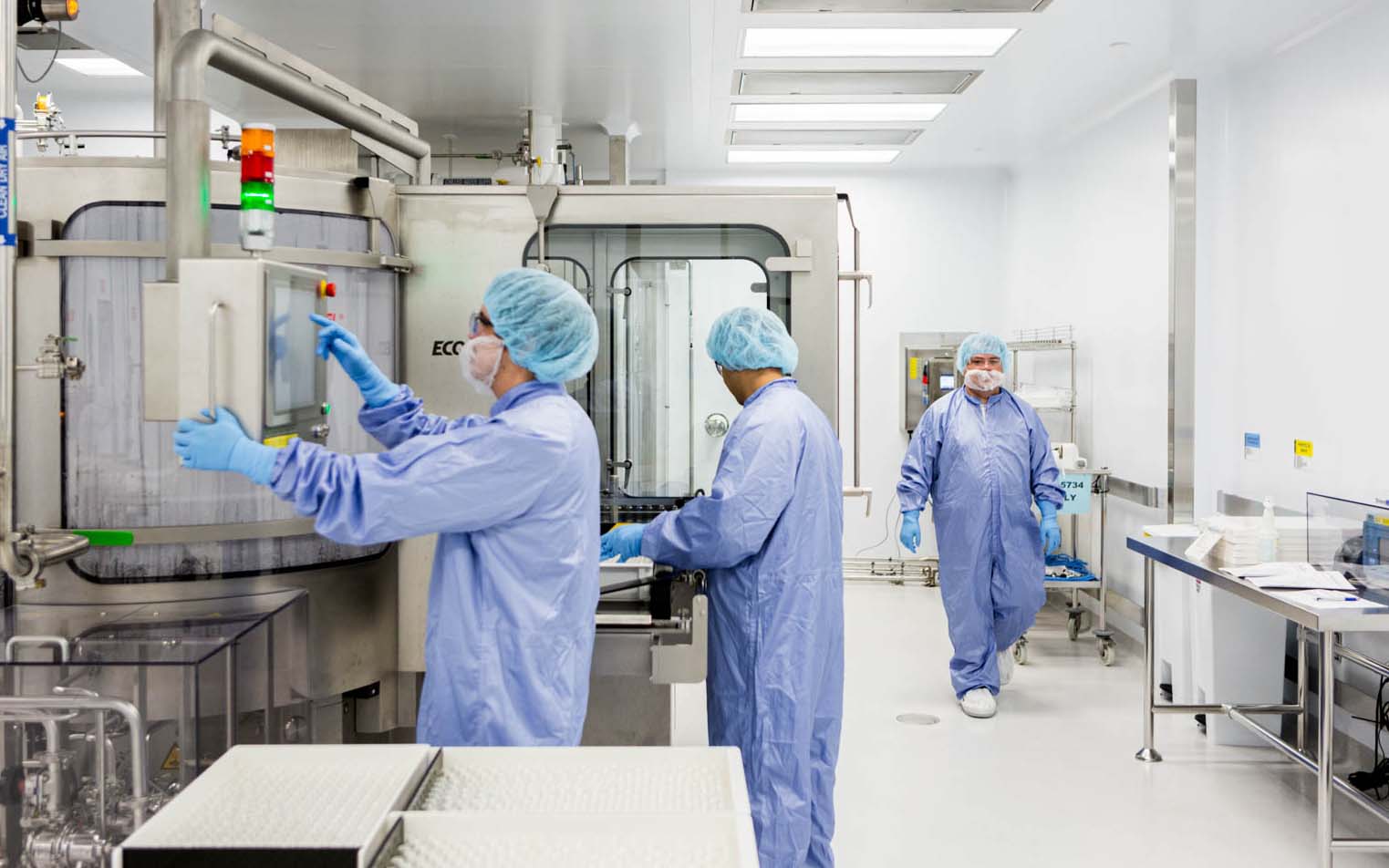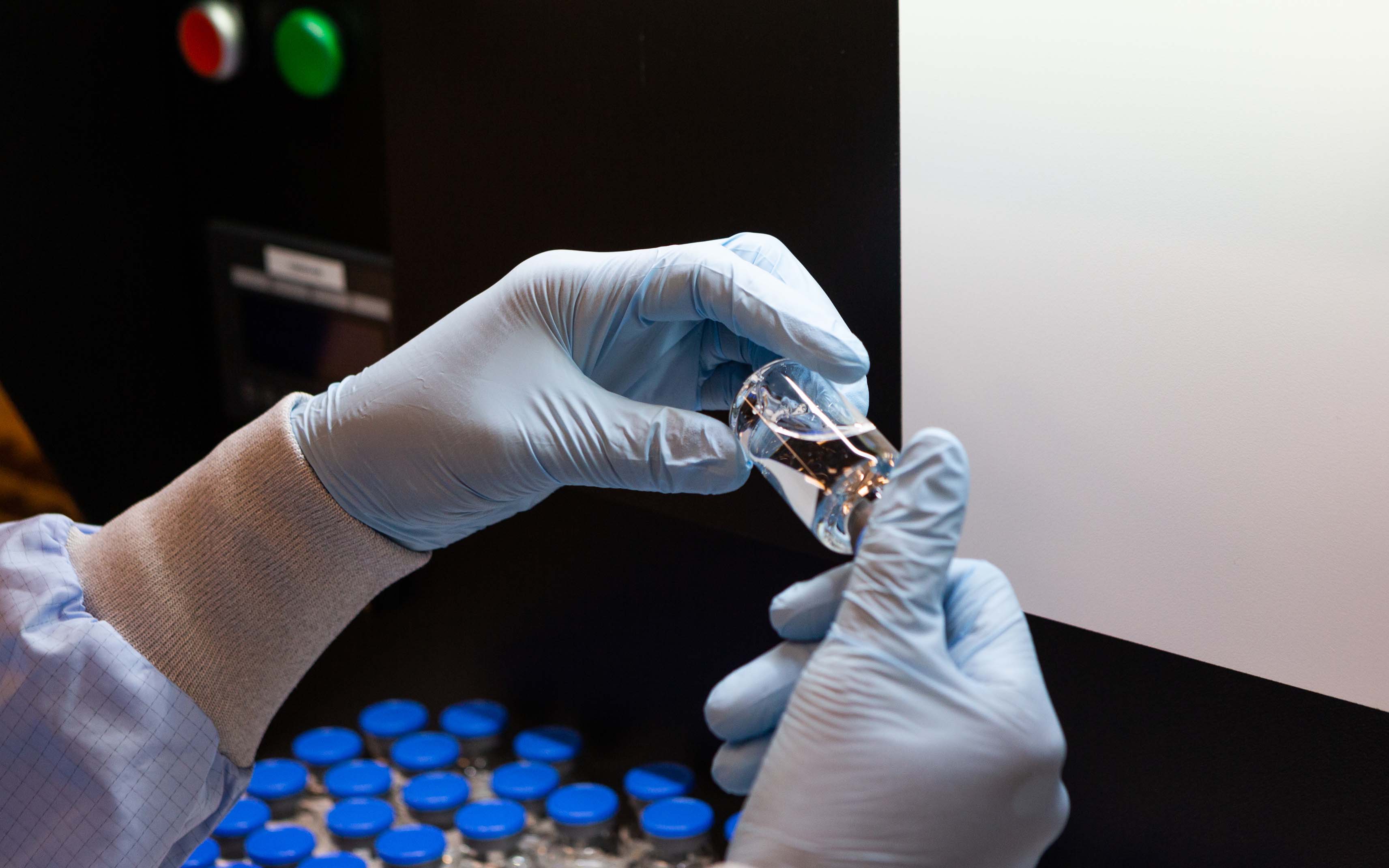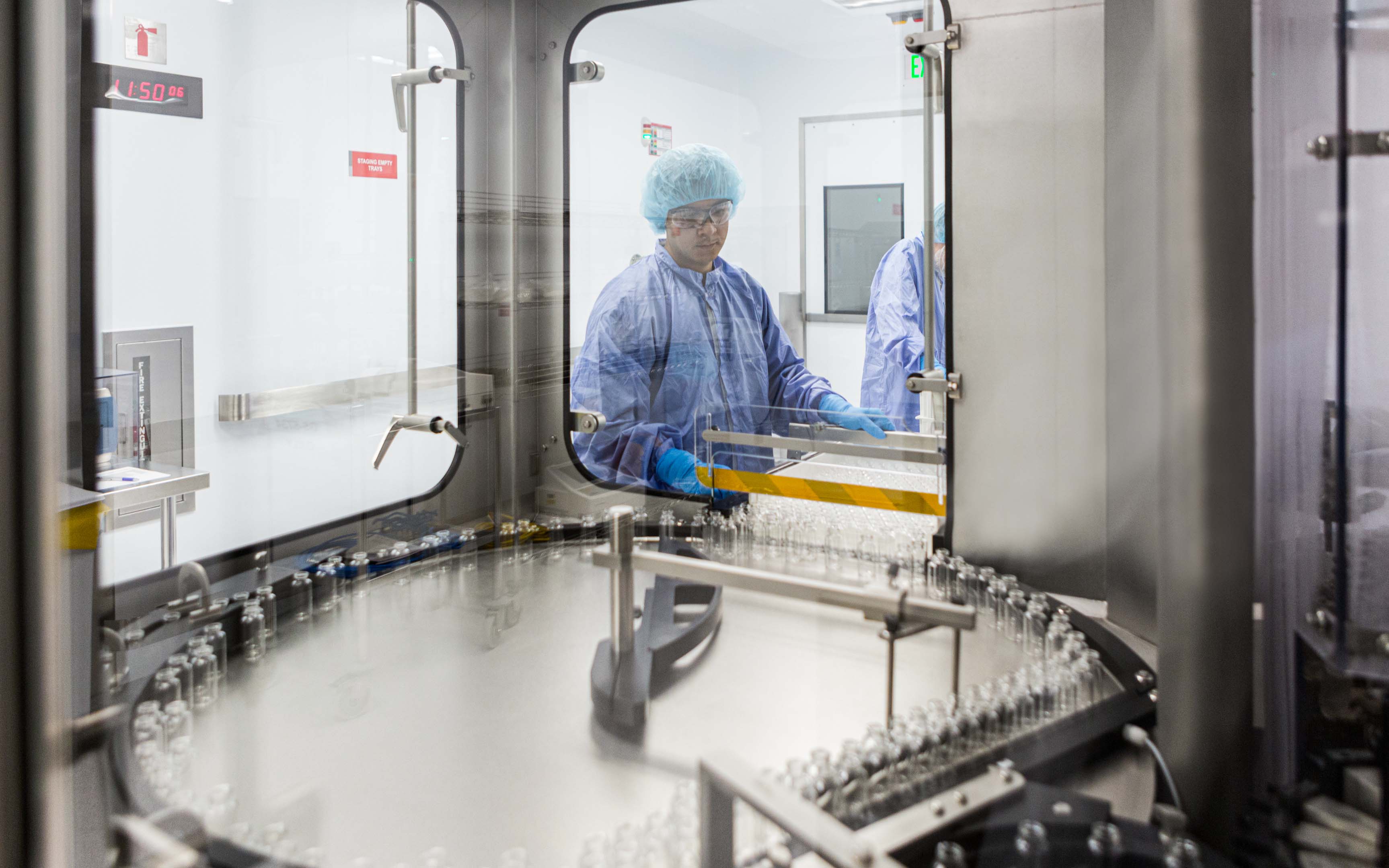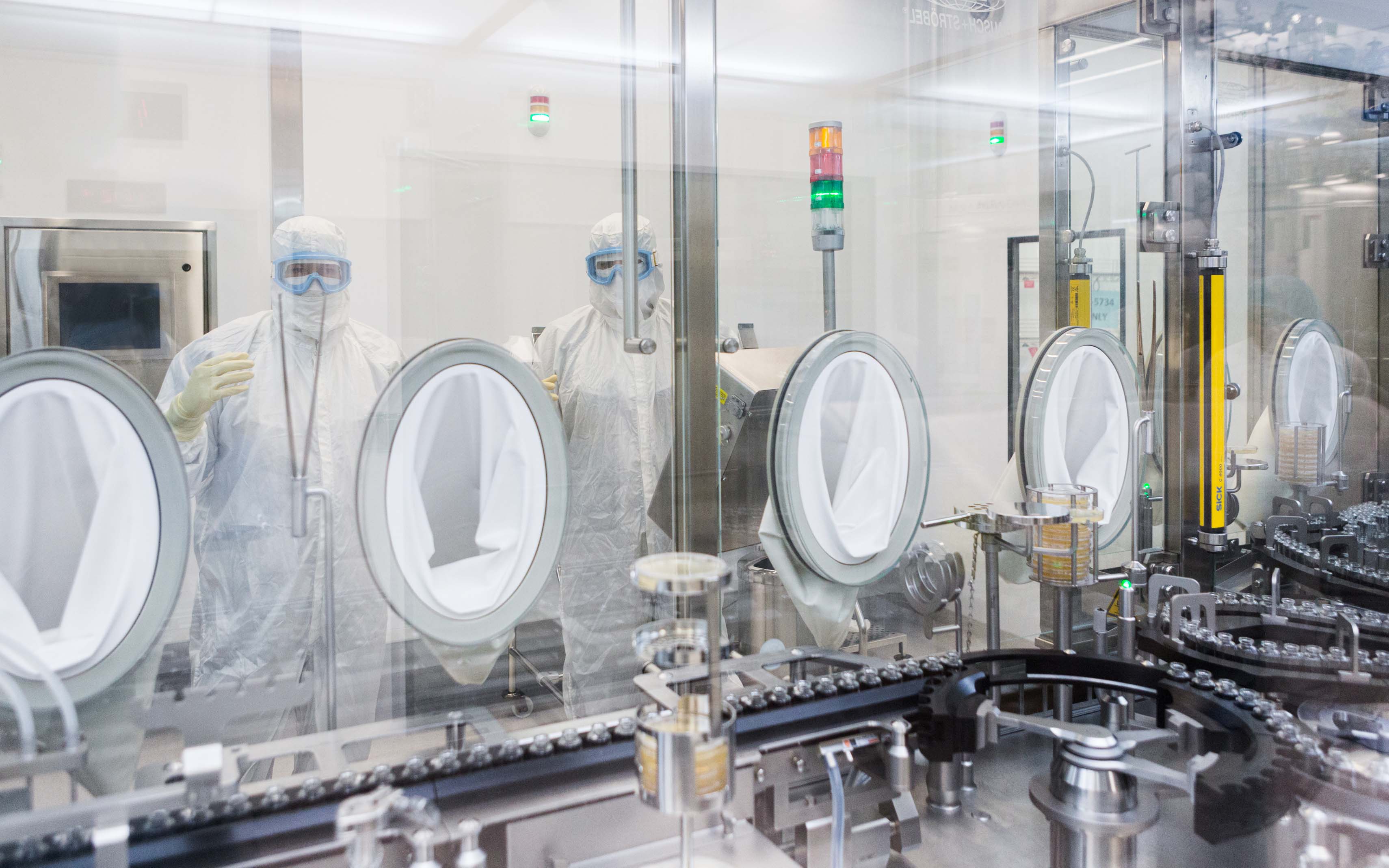Global competition for COVID-19 cure reaches ‘Warp Speed’ with key Phase 3 clinical trials underway
August 3-9, 2020
By Daily Record Staff
As the number of COVID-19 cases surpasses 4.5 million and 1,000 deaths per day, the quest to find a cure for the fast-spreading coronavirus known as SARS-CoV-2 has accelerated as thousands of volunteers across the U.S. begin final stage testing of several promising vaccines.
On Monday (July 27), the National Institute of Allergy and Infectious Diseases, part of the National Institutes of Health (NIH), announced that it has begun a Phase 3 clinical trial designed to evaluate if an investigational vaccine can prevent symptomatic coronavirus disease 2019 (COVID-19) in adults.
The vaccine, known as mRNA-1273, was co-developed by the Cambridge, Massachusetts-based biotechnology company Moderna Inc., and the NIH. The trial, which will be conducted at 89 U.S. clinical research sites, is expected to enroll approximately 30,000 adult volunteers who do not have COVID-19.
“Although face coverings, physical distancing and proper isolation and quarantine of infected individuals and contacts can help us mitigate SARS-CoV-2 spread, we urgently need a safe and effective preventive vaccine to ultimately control this pandemic,” said NIAID Director Dr. Anthony Fauci.
Moderna is leading the trial as the regulatory sponsor and is providing the investigational vaccine for the trial. The Biomedical Advanced Research and Development Authority (BARDA) of the U.S. Department of Health and Human Services’ Office of the Assistant Secretary for Preparedness and Response and NIAID are providing more than $950 million in funding support for the trial. The vaccine efficacy trial is the first to be implemented under “Operation Warp Speed,” a multi-agency collaboration led by HHS that aims to accelerate the development, manufacturing and distribution of medical countermeasures for COVID-19.
“Having a safe and effective vaccine distributed by the end of 2020 is a stretch goal, but it is the right goal for the American people,” said NIH Director Dr. Francis Collins. “The launch of this Phase 3 trial in record time while maintaining the most stringent safety measures demonstrates American ingenuity at its best and what can be done when stakeholders come together with unassailable objectivity toward a common goal.”
In addition to the Moderna trials, pharmaceutical giant Pfizer Inc. and smaller partner BioNTech SE also announced Monday the start of a global Phase 2/3 safety and efficacy clinical study to evaluate a single drug candidate from their vaccine program against SARS-CoV-2.
After earlier Phase 1/2 clinical trials, in partnership with the U.S. Food and Drug Administration’s (FDA) Center for Biologics Evaluation and Research (CBER) and other global regulators, Pfizer and BioNTech chose to advance their BNT162b2 vaccine candidate into the Phase 2/3 study. BNT162b2 encodes an optimized SARS-CoV-2 full length spike glycoprotein, which is the target of virus neutralizing antibodies.
“Our selection of the BNT162b2 vaccine candidate and its advancement into a Phase 2/3 study are the culmination of an extensive, collaborative and unprecedented R&D program involving Pfizer, BioNTech, clinical investigators, and study participants with a singular focus of developing a safe and effective COVID-19 RNA vaccine. The Phase 2/3 study protocol follows all the (FDA) guidance on clinical trial design for COVID-19 vaccine studies,” said Kathrin Jansen, senior vice president and health and head of vaccine research and development at Pfizer. “The initiation of the Phase 2/3 trial is a major step forward in our progress toward providing a potential vaccine to help fight the ongoing COVID-19 pandemic, and we look forward to generating additional data as the program progresses.”
Varied Vaccines Vying for Treatment
But the rush to find a COVID-19 vaccine is not only taking place in the U.S., several other countries are also holding Phase 3 clinical trials. As of July 29, 2020, there were 1,997 ongoing and completed COVID-19 studies listed on the World Health Organization’s International Clinical Trials Registry Platform, which do not include U.S. trials. Based on the most recent data, 616 of trials are currently being sponsored in Europe, followed by 373 in North America, 120 in East Asia, 83 in the Middle East, 54 in Africa, and the rest in other varied research outposts across globe.
According to ClinicalTrials.gov, a database of privately and publicly funded clinical studies across the globe housed in the U.S. National Library of Medicine, there are now 61 ongoing COVID-19-related studies to find a vaccine in the U.S. That total does not include clinical trials for hydroxychloroquine, which were halted in late June by NIH after researchers agreed the drug does no harm in treating COVID-19 but offers no real benefits.
Hydroxychloroquine, which has been touted by President Donald Trump as a possible cure for COVID-19 is used to treat malaria and rheumatoid conditions such as arthritis. In various studies, the drug had demonstrated antiviral activity, an ability to modify the activity of the immune system, and it has an established safety profile at appropriate doses, leading to the hypothesis that it may have also been useful in the treatment of COVID-19.
However, according to many scientific experts, the novel vaccine called AZD1222 developed by Oxford University and AstraZeneca may be the most promising candidate to treat COVID-19. In Phase 3 trials earlier this year, researchers administered the drug to 1,077 participants who had not previously tested positive for the coronavirus between early April and late May.
In June, AstraZeneca reached an agreement with Europe’s Inclusive Vaccines Alliance (IVA), spearheaded by Germany, France, Italy and the Netherlands, to supply up to 400 million doses of the University of Oxford’s potential COVID-19 vaccine. The European pharmaceutical giant, with has offices in London, Stockholm and New York City, said it seeking to expand manufacturing capacity further and is open to collaborating with other companies in order to meet its commitment to support access to the vaccine at no profit during the pandemic.
AstraZeneca also has recently completed similar agreements with the UK, US, the Coalition for Epidemic Preparedness Innovations and Gavi the Vaccine Alliance for 700 million doses and agreed to license with the Serum Institute of India for the supply of an additional one billion doses, principally for low-and-middle-income countries. Total manufacturing capacity currently stands at two billion doses, the company said.
“This agreement will ensure that hundreds of millions of Europeans have access to Oxford University’s vaccine following approval,” said Company CEO Pascal Soriot.
Meanwhile, the fierce global competition to find a cure has also let to allegations of cheating and stealing of proprietary information. In recent weeks, the Trump administration has accused hackers in Russian and China of attempting to steal U.S. vaccine data from research centers in the U.S. and United Kingdom. Last week, the U.S. State Department ordered China to shut its consulate in Houston, accusing the Far East rival of attempting to steal American science and technology secrets, including research on a COVID-19 vaccine.
In the U.S., the competition to find a COVID-19 vaccine began in earnest in late February after a randomized, controlled clinical trial to evaluate the investigational antiviral drug remdesivir began at the University of Nebraska Medical Center (UNMC) in Omaha.
The first trial participant, which was sponsored by the NIH included an American who was repatriated after being quarantined on the Diamond Princess cruise ship that docked in Yokohama, Japan and volunteered to participate in the study. Remdesivir, developed by Gilead Sciences Inc., at the time was previously tested in humans with Ebola virus disease and has shown promise in animal models for treating Middle East respiratory syndrome (MERS) and severe acute respiratory syndrome (SARS), which are caused by other coronaviruses.
Two weeks later, Fauci and NIAID announced another Phase 1 clinical trial evaluating an investigational vaccine designed to protect against coronavirus began at Kaiser Permanente Washington Health Research Institute (KPWHRI) in Seattle. The NIH funded open-label trial that enrolled 45 healthy adult volunteers ages 18 to 55 years to evaluate different doses of the vaccine for safety and its ability to induce an immune response in participants.
That antiviral, called mRNA-1273, was developed by NIAID scientists and partners at Moderna Inc., a biotech firm based in Cambridge, Mass. The Coalition for Epidemic Preparedness Innovations (CEPI) also supported the manufacturing of the Phase I inoculation candidate, the first of multiple steps in the clinical trial process for evaluating the potential benefit of the vaccine.
Gilead’s Balm
In early March, Foster City, Calif.-based Gilead first announced that the U.S. FDA had fast tracked remdesivir for the treatment of COVID-19 and initiated two Phase 3 clinical studies to evaluate the safety and efficacy of drug in adults diagnosed with the novel coronavirus. These randomized, open-label, multicenter studies enrolled nearly 1,000 patients at medical centers primarily across Asian countries, as well as other countries globally with high numbers of diagnosed cases, beginning in March. The studies assessed two dosing durations of remdesivir, administered intravenously.
On July 10, the fast-growing Silicon Valley pharmaceutical firm presented announced additional data on remdesivir at the Virtual COVID-19 Conference as part of the 23rd International AIDS Conference, including a comparative analysis of the Phase 3 SIMPLE-Severe trial and a real-world retrospective cohort of patients with severe COVID-19. In this analysis, remdesivir was associated with an improvement in clinical recovery and a 62% reduction in the risk of mortality compared with standard of care.
“We are working to broaden our understanding of the full utility of remdesivir. To address the urgency of the continuing pandemic, we are sharing data with the research community as quickly as possible with the goal of providing transparent and timely updates on new developments with remdesivir,” said Gilead’s Chief Medical Office, Dr. Merdad Parsey. “These data presented at the Virtual COVID-19 Conference shed additional light on the use of remdesivir in specific patient populations, including those that may be susceptible to higher rates of COVID-19 infection, as well as others that are particularly vulnerable, including children and pregnant and postpartum women.”
Due to the pandemic, the FDA has issued an Emergency Use Authorization for remdesivir for the treatment of hospitalized patients with severe COVID-19. However, the FDA emphasizes that remdesivir is still an investigational drug whose safety and efficacy for the treatment of COVID-19 as a vaccine has not been established.
PHOTO CAPTIONS: (Photos provided by Gilead Science Inc.)
The National Institute for Health accelerates Phase 3 clinical trials investigational vaccines for COVID-19 under administration’s “Operation Warp Speed” program.
Scientists at Gilead Science conduct clinical trials testing the safety and efficacy of remdesivir, the first antiviral to have demonstrated patient improvement in clinical trials for COVID-19.






